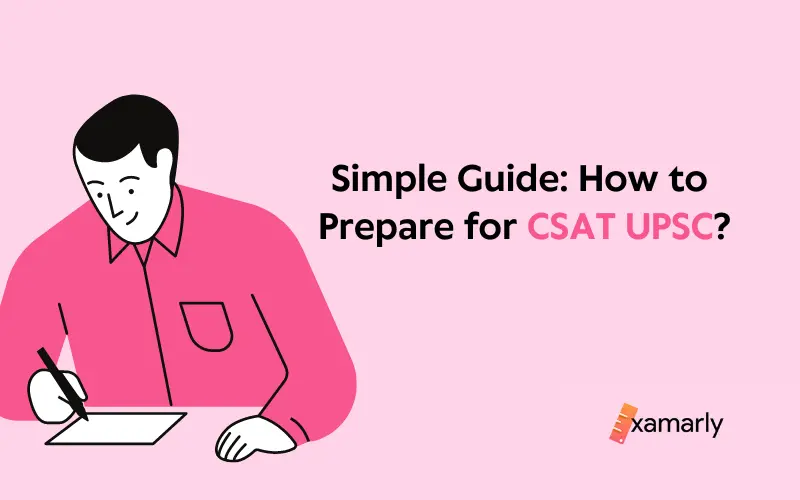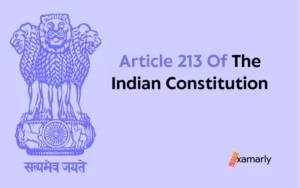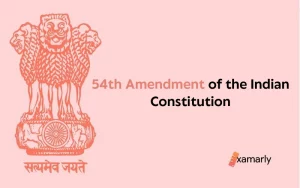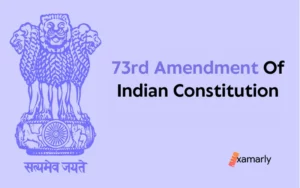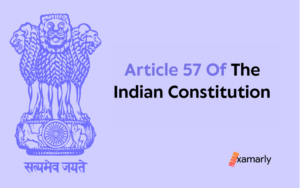Are you wondering how to prepare for CSAT UPSC and looking for the best tips?
Preparing for the Civil Services Aptitude Test (CSAT) of the Union Public Service Commission (UPSC) can be a daunting task, but it is essential for those aspiring to become civil servants.
To crack this exam, you need a well-planned preparation strategy that covers all the important topics and question types. In this article, we will provide you with some expert tips on how to prepare for CSAT UPSC that will help you ace the exam.
From understanding the exam pattern and syllabus to practising mock tests and improving time management, we’ve got you covered. So, let’s dive in and explore the best ways to prepare for CSAT UPSC.
- Basics to Start Preparing for CSAT UPSC
- UPSC CSAT Paper
- CSAT Preparation Strategy Tips
- How to Cover Math Portion
- How to Cover Comprehension Part
- How to Break the Complexity of Comprehension?
- How to Solve Comprehension?
- 9 Things to Not Do When You Prepare for CSAT UPSC
- Conclusion
- Frequently Asked Questions
- How to start preparing for CSAT UPSC?
- What are the best books for CSAT UPSC preparation?
- How important is current affairs for CSAT UPSC preparation?
- How to improve reasoning and aptitude skills for CSAT UPSC?
- Is coaching necessary for CSAT UPSC preparation?
- How to manage time effectively during CSAT UPSC exam?
- How to stay motivated during CSAT UPSC preparation?
Basics to Start Preparing for CSAT UPSC
- Understand the Exam Pattern and Syllabus: The UPSC CSAT exam is conducted in two stages – Preliminary and Main. The Preliminary exam consists of two papers – General Studies and CSAT. The CSAT paper assesses your aptitude and reasoning skills. To begin your preparation, you must be familiar with the exam pattern and syllabus.
- Get Good Study Material: The quality of your study material can make or break your preparation. You should get hold of good study material that covers the entire syllabus. Apart from the recommended books, you should also refer to NCERT textbooks.
- Make a Study Plan: Once you have your study material, you need to make a study plan. A well-planned approach can help you stay on track and cover the syllabus on time. Divide the syllabus into smaller portions, allot time for each, and set targets for completion.
- Develop Good Reading Habits: To crack the UPSC CSAT exam, you need to be a voracious reader. Read newspapers, magazines, and online portals to stay updated with current affairs. This will help you in both the Prelims and Mains.
- Practice Solving Previous Years’ Question Papers: Solving previous years’ question papers is a must-do step in your preparation. This will give you an idea about the exam pattern and the type of questions asked. You can also identify your strengths and weaknesses and work on them.
- Take Mock Tests: Taking mock tests is an effective way to gauge your preparation level. It will also help you manage time and improve your accuracy.
- Stay Motivated and Disciplined: Preparing for UPSC CSAT is a long journey, and you need to stay motivated throughout. Surround yourself with positive influences, stay disciplined and focused on your goals. Remember, consistency and dedication are key to success.
UPSC CSAT Paper
CSAT Syllabus
| 1 | Comprehension |
| 2 | Interpersonal skills including communication skills |
| 3 | Logical reasoning and analytical ability |
| 4 | Decision-making and problem-solving |
| 5 | General mental ability |
| 6 | Basic numeracy (numbers and their relations, orders of magnitude, etc.) (Class X level);Data interpretation (charts, graphs, tables, data sufficiency, etc. -Class X level) |
CSAT Syllabus
UPSC CSAT Paper Pattern & Marking Scheme
- The UPSC CSAT paper comprises 80 questions and the time designated for the paper is 2 hours.
- A total of 2.5 marks are given for each correct answer in the CSAT, for a total of 200.
- If a candidate chooses an incorrect answer, 1/3rd of the total marks allotted to that question will be subtracted from your total score.
- There are no penalty points associated with questions that are not attempted.
Booklists
Pick a book that can cover a section of the CSAT. These books will have everything you need to succeed. They contain plenty of practice questions.
- GS Manual Paper-II – TMH Publications
- Cracking the CSAT Paper-2 – Arihant
- Concise CSAT by Madhukar Bhagat – TMH Publications
CSAT Preparation Strategy Tips
Since CSAT is qualifying by nature, learn how to prepare for CSAT UPSC with the strategies listed below:
- Know the syllabus: Since UPSC Prelims serves the first elimination round. The success rate is not more than 3%, it is required to know the syllabus before starting preparation of GS Paper 2(i.e. CSAT). Make a schedule according to that so that you won’t skip any portion.
- Identify the weak areas: Solve the previous year’s question papers (at least 1) first. This will help you to know whether you can solve the CSAT paper or not. Also, this will enable you to analyze your weak and strong areas. Henceforth proceed with your preparation of CforT with your weak areas.
- Time Management: While solving a previous year’s CSAT Paper, note down the time you spent solving it. This will help you to know how much time you take in solving one paper and thereby focus on efficient time management. With practice, one can minimize the average time for solving the CSAT Paper of UPSC Prelims.
- Hold your strength: While solving a CSAT Paper, try to solve those areas first which are your strength. This will not only maintain your confidence but also boost your performance and reduce your panic level. Afterwards, move to the other portion that is left to solve. In other words, solve the questions from easy to difficult ones.
- Solve Mock exams & Previous Year Papers: The UPSC CSAT can make or break your success at the preliminary stage of the Civil Service Examination. Practising the UPSC CSAT mock exams will give you an edge over other candidates. A mock paper is specially designed for the UPSC civil service exam 2022 and is designed with a negative marking and qualifying nature. You can solve these tests to enhance your speed and accuracy.
It is also essential to practice reading comprehension and data interpretation. Make a habit of solving previous years’ papers as well as sample papers of CSAT weekly or daily. This will keep you on track for qualifying for UPSC Prelims. - Practice from the book: Tata McGraw Hill publishes a CSAT manual, and though some are more useful than others, the CSAT Manual is by far the most popular. If your score is below 100 or you’re considering revision stuff for CSAT, this manual should be your first stop. All topics are comprehensively detailed in this book. This will allow you to practice and review each topic in an expedient amount of time.
How to Cover Math Portion
For UPSC GS Paper II go through the mathematics book of classes 6 to 10. The questions in this section are not very hard but will act as a barrier to your CSAT performance if ignored.
Go through the books and clear your concepts. This will hardly take much time if you study seriously as you have already studied all of this in your school days.
Practice as many questions as you can about logical reasoning, analytical ability, data interpretation, and many more. Never step back from practice as practice makes you perfect for CSAT Preparation.
How to Cover Comprehension Part
Unfold the Complexity of Comprehension
Read newspapers, weekly magazines, etc. which will improve your understanding level along with reading.
Make reading a habit. This will help you to understand the meaning of articles (which may be complex) and you will be able to understand what the author is conveying through his/her article.
In short, reading will:
- Improve your vocabulary
- Help you to extract the actual meaning
- Increase your reading speed
- Minimize the time consumed in understanding a given article
Keywords, an Important Part of Comprehension
Before commencing to read the comprehension, go through the question first and underline the keywords. As keywords play a vital role in answering comprehension questions in CSAT Papers. Then identify such keywords in a passage.
This will become easier for you to solve the question at a faster pace in UPSC.
How to Break the Complexity of Comprehension?
- Reading: Make a habit of reading newspaper columns, magazines, etc. This will not only improve your vocabulary but also your English and enable you to consume less time in understanding the comprehension.
In other words, it will improve your comprehension skills. This will save much time in understanding each statement of comprehension in the CSAT Paper. It will ultimately help you to finish your paper on time. - Building a vocabulary: While reading newspaper columns or magazines keep a dictionary with you so that you can quickly make a view of hard words. This will improve your vocabulary. Henceforth there will be less probability that you come across such words that you are not familiar with in CSAT Paper.
- Analyzing its actual meaning: When your vocabulary, as well as understanding level, is better, then you’ll be able to unfold the meaning of the passage asked in CSAT. When you can analyze the actual meaning of the passage asked in the CSAT Paper, then you can solve it correctly at a faster rate.
How to Solve Comprehension?
- Understanding what the question is demanding: That means before commencing to read a passage, read the question first. This will enable you to understand what you have to search for in a passage. This will save enough time as if you read the passage then go through the question and again come back to the passage for the answer, which will eat up your time.
- Elimination method: While solving a passage in UPSC Prelims GS Paper II try to use the elimination method. In this method eliminate the option which you think is the least possible to be correct. Reading a passage and eliminating an option one by one will lead you to the correct option.
9 Things to Not Do When You Prepare for CSAT UPSC
- Procrastinating: Avoid delaying your studies or waiting until the last minute to start your preparation. Procrastination can lead to stress, anxiety, and incomplete syllabus coverage.
- Ignoring NCERT Books: NCERT books form the foundation for UPSC exams. Ignoring them can hamper your preparation and reduce your chances of success.
- Relying on One Source of Information: Relying on a single book or website can limit your knowledge and understanding of a topic. To get a comprehensive understanding, refer to multiple sources of information.
- Neglecting Current Affairs: Staying up to date with current affairs is crucial for success in UPSC exams. Neglecting this aspect can reduce your overall score.
- Overconfidence: Overconfidence can lead to complacency and a false sense of security. It is important to stay grounded and maintain a humble approach to learning.
- Skipping Revision: Revision is a critical aspect of UPSC preparation. Skipping revision can lead to a lack of retention and reduce your chances of scoring well in the exam.
- Underestimating the Importance of Mock Tests: Taking mock tests is essential for acclimatizing yourself to the exam environment and improving your time management skills. Underestimating their importance can hamper your chances of success.
- Focusing Too Much on a Single Topic: Focusing too much on a single topic can lead to a lack of balance in your preparation. It is important to give equal importance to all topics and cover the entire syllabus.
- Neglecting Your Health: Preparing for UPSC can be mentally and physically draining. Neglecting your health can lead to burnout, reduced productivity, and a lack of focus.
Conclusion
Don’t take CSAT Paper lightly as it holds min of 33% mark. This means skipping this part will create a problem for you to qualify for UPSC Prelims.
This paper creates a difference between “Pass a UPSC Prelims” and “will appear for the UPSC Prelims next time“.
With Examarly your CSAT preparation for UPSC Prelims will be hassle-free.
We hope that you got your answers in our guide!
Frequently Asked Questions
How to start preparing for CSAT UPSC?
To start preparing for CSAT UPSC, one should familiarize themselves with the exam pattern and syllabus, get good study material, make a study plan, develop good reading habits, practice solving previous years’ question papers and take mock tests.
What are the best books for CSAT UPSC preparation?
Some of the best books for CSAT UPSC preparation include NCERT textbooks, Verbal and Non-Verbal Reasoning by R.S. Aggarwal, Indian Polity by M. Laxmikanth, and India Yearbook by Publications Division.
How important is current affairs for CSAT UPSC preparation?
Staying up to date with current affairs is crucial for success in CSAT UPSC exam. One should read newspapers, magazines, and online portals to stay updated with current affairs.
How to improve reasoning and aptitude skills for CSAT UPSC?
To improve reasoning and aptitude skills for CSAT UPSC, one should practice solving previous years’ question papers, take mock tests, and refer to books such as Verbal and Non-Verbal Reasoning by R.S. Aggarwal.
Is coaching necessary for CSAT UPSC preparation?
Coaching is not necessary for CSAT UPSC preparation. With the right study material, dedication, and discipline, one can prepare for the exam on their own. However, coaching can provide additional guidance and support.
How to manage time effectively during CSAT UPSC exam?
To manage time effectively during CSAT UPSC exam, one should practice solving previous years’ question papers and take mock tests to improve speed and accuracy. One should also strategize their approach to the exam and allocate time wisely.
How to stay motivated during CSAT UPSC preparation?
To stay motivated during CSAT UPSC preparation, one should set achievable goals, maintain a positive attitude, take regular breaks, and engage in activities that bring them joy. Surrounding yourself with like-minded peers and mentors can also provide additional motivation and support.


